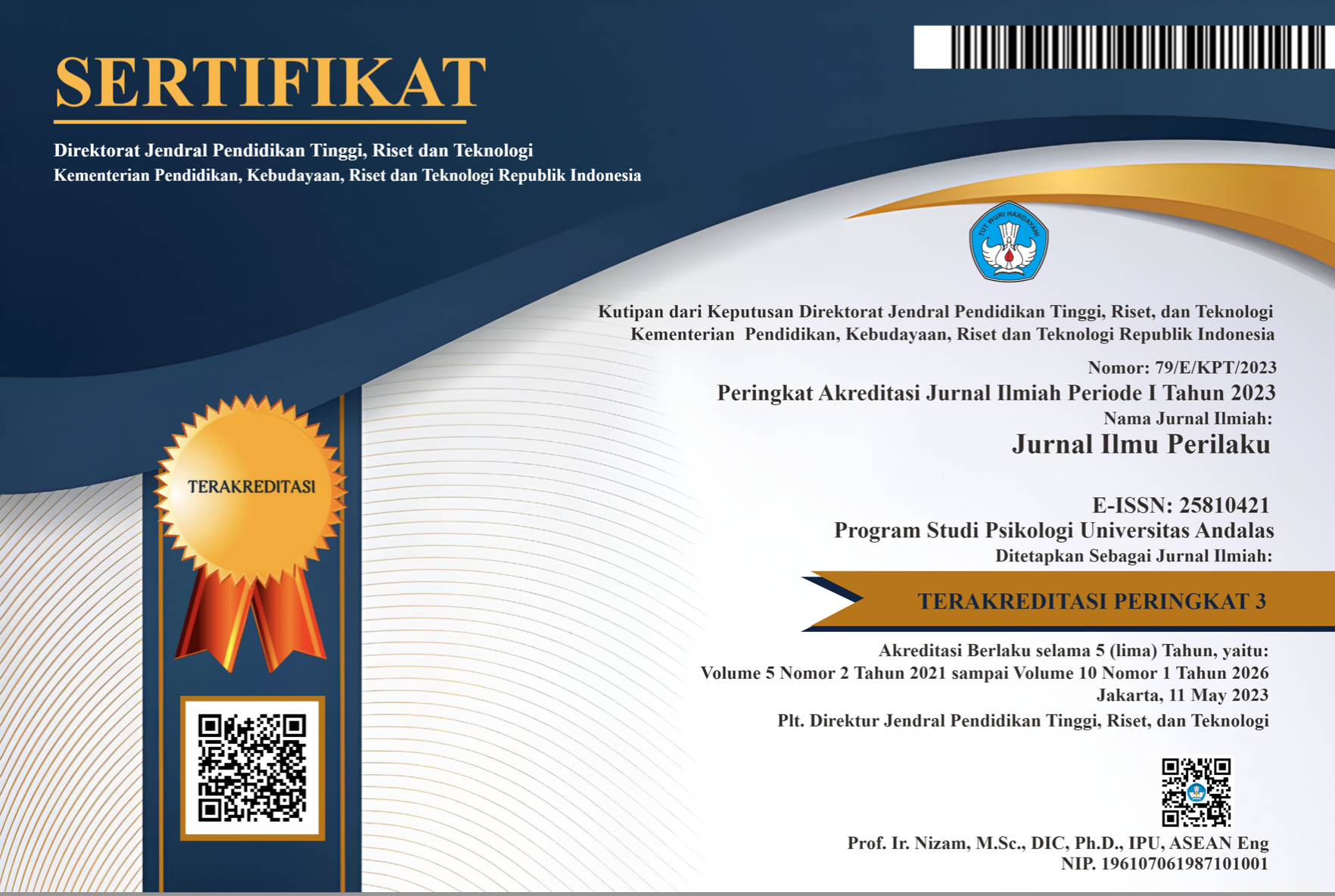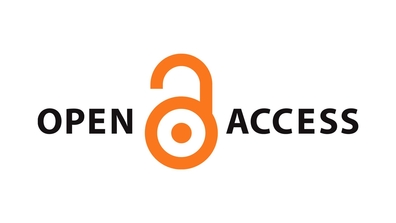Teachers’ Beliefs : Kompetensi Emosional dan Sosialisasi Emosi pada Anak Usia Dini
Abstract
Teachers' beliefs about emotions can provide an overview of how teachers support the development of emotional competence in early childhood. This study aimed to investigate preschool teachers’ beliefs about emotional competence and emotion socialization. A sample of 194 preschool teachers from 22 Kindergartens completed the Teachers' Emotion Beliefs Scale (TEBS) and open questionnaires. The data were analyzed using descriptive statistical techniques and thematic analysis. The research results showed that 67% of teachers had developmentally appropriate beliefs, while 33% of teachers had beliefs that were not appropriate to children's emotional development. The developmentally appropriate belief explains the importance of the teacher's role in facilitating children's emotional competence. On the other hand, unappropriateness is explained by teachers' beliefs regarding children's expressions of negative emotions (such as sadness and anger), which according to teachers, young children do not need to express these emotions for certain reasons. Furthermore, the results ofthe open-ended questionnaire showed several teacher limitations regarding conceptual understanding of children's emotional competence, as well as in using appropriate strategies for emotional socialization (especially in helping children manage negative emotions). The way teachers socialize emotions is based on their beliefs regarding children's emotional competence.
Downloads
References
Ashiabi, G.S. (2000). Promoting the emotional development of preschoolers. Early Childhood Education Journal, 28, 79-84.
Bassett, H. H., Denham, S. A., Mohtasham, M., & Austin, N. (2020). Psychometric properties of the Book Readings for An Affective Classroom Education (BRACE) coding system. Reading Psychology, 41(4), 322–346. https://doi.org/10.1080/02702711.2020.1768980
Beisly, A. (2011). Emotional competence in a pre-kindergarten classroom: Links to social and emotional competence. (Doctoral dissertation, ProQuest Dissertations and !eses database, UMI No. 1495027).
Braun, V., & Clarke, V. (2006). Using thematic analysis in psychology. Qualitative Research in Psychology, 3(2), 77–101. https://doi.org/10.1191/1478088706qp063oa
Bronson, W. C. (1974). Mother-toddler interaction: A perspective on studying the development of competence. Merrill-Palmer Quarterly, 20(4), 275–301.
Camras, L. A., & Halberstadt, A. G. (2017). Emotional development through the lens of affective social competence. Current Opinion in Psychology, 17, 113–117. https://doi.org/10.1016/j.copsyc.2017.07.003
Denham, S. A. (1998). Emotional development in young children. New York, NY: The Guilford Press.
Denham, S. A. (2023). The development of emotional competence in young children. The Guilford Press.
Denham, S. A., Bassett, H. H., & Zinsser, K. (2012). Early childhood teachers as socializers of young children’s emotional competence. Early Childhood Education Journal, 40(3), 137–143. https://doi.org/10.1007/s10643-012-0504-2
Denham, S. A., Bassett, H. H., & Wyatt, T. (2015). The socialization of emotional competence. In J. E. Grusec & P. D. Hastings (Eds.), Handbook of socialization: Theory and research (pp. 590–613). The Guilford Press.
Di Maggio, R., Zappulla, C., & Pace, U. (2016). The relationship between emotion knowledge, emotion regulation and adjustment in preschoolers: A mediation model. Journal of Child and Family Studies, 25(8), 2626–2635. https://doi.org/10.1007/s10826-016-0409-6
Durlak, J. A., Weissberg, R. P., Dymnicki, A. B., Taylor, R. D., & Schellinger, K. B. (2011). The impact of enhancing students’ social and emotional learning: a meta-analysis of school-based universal interventions. Child Development, 82, 405-432. https://doi.org/10.1111/j.1467-8624.2010.01564.x
Fives, H., & Gill, M. G. (2015). International handbook of research on teachers beliefs. New York: Routledge, Taylor & Francis Group.
Gosney, S. L. (2004). Child care providers’ beliefs about and reactions to children’s negative emotions. [Master’s thesis, Oklahoma State University].ShareOK.
https://hdl.handle.net/11244/9109
Hagan, C. A., Halberstadt, A. G., Cooke, A. N., & Garner, P. W. (2020). Teachers' beliefs about children's anger and skill in recognizing children's anger expressions. Frontiers in psychology, 11, 474. https://doi.org/10.3389/fpsyg.2020.00474
Halberstadt, A. G., Dunsmore, J. C., Bryant, A., (2013). Development and validation of the Parents‘ Beliefs about Children’s Emotions
Halberstadt, A. G., Dunsmore, J. C., Bryant, A., Jr., Parker, A. E., Beale, K. R., & Thompson, J. A. (2013). Development and validation of the Parents‘ Beliefs about Children’s Emotions questionnaire. Psychological Assessment, 25, 1195-1210. doi: 10.1037/a0033695
Herndon, K. J., Bailey, C. S., Shewark, E. A., Denham, S. A., & Bassett, H. H. (2013). Preschoolers' emotion expression and regulation: relations with school adjustment. The Journal of genetic psychology, 174(5-6), 642–663. https://doi.org/10.1080/00221325.2012.759525
Holzberger, D., Philipp, A., & Kunter, M. (2013). How teachers’ self-efficacy is related to instructional quality: A longitudinal analysis. Journal of Educational Psychology, 105(3), 774–786. https://doi.org/10.1037/a0032198
Howes, C., & Ritchie, S. (2002). A Matter of Trust: Connecting Teachers and Learners in the Early Childhood Classroom. New York: Teachers College Press.
Hyson, M.C., & Lee, K. (1996). Assessing early childhood teachers' beliefs about emotions: content, contexts, and implications for practice. Early Education and Development, 7, 59-78.
Jaramillo, A. M. (2006). Early childhood educators’ experiences implementating a social competence promotion program for preschool-aged children: The “Safe Spaces” program (Master’s thesis). Retrieved from https://circle.ubc.ca/
Jiang, J., Vauras, M., Volet, S.E., & Salo, A. (2019). Teacher beliefs and emotion expression in light of support for student psychological needs: a qualitative study. Education Sciences, 9(68), 1-21.
Kılıç, S. (2015). Emotional competence and emotion socialization in preschoolers: the view point of preschool teachers. Journal of Education: Theory & Practice., 15(4), 1007–1020.
Kitzmann, K., & Howard, K. M. (2011). Emotion socialization by early childhood educators: Conceptual models from psychology. Asia-Pacific Journal of Research, 5(1), 23–44.
Lim, S. M., Rodger, S. & Brown, T. (2013). Model of social competence in an early childhood environment. Occupational Therapy in Mental Health, 29(2), 114-133. https://doi.org/10.1080/0164212X.2013.788975
Losby, M. (2019). Emotion socialization and psychological distress: The mediating roles of emotion recognition and emotion regulation. Graduate Theses and Dissertations. 17045.
McCabe, P. C., & Altamura, M. (2011). Empirically valid strategies to improve social and emotional competence of preschool children. Psychology in the Schools, 48(5), 513–540. https://doi.org/10.1002/pits.20570
Morkel, V., & McLaughlin, TW. (2015). Promoting social and emotional competencies in early childhood: Strategies for teachers. Kairaranga. 16(1), 45-51
Perlman S. B., Kalish C. W., Pollak S. D. (2008). The role of maltreatment experience in children’s understanding of the antecedents of emotion. Cognition and Emotion, 22, 651–670. https://doi.org/10.1080/02699930701461154
Shewark, E. A., & Blandon, A. Y. (2015). Mothers' and fathers' emotion socialization and children's emotion regulation: A within‐family model. Social Development, 24(2), 266–284. https://doi.org/10.1111/sode.12095
Sireci, S. G., Yang, Y., Harter, J., & & Ehrlich, E. J. (2006). Evaluating Guidelines For Test Adaptations: A Methodological Analysis of Translation Quality. Journal of Cross-Cultural Psychology, 37(5), 557-567.https://doi.org/10.1177%2F0022022106290478
Swartz, R. A., & McElwain, N. L. (2012). Preservice teachers’ emotion-related regulation and cognition: Associations with teachers’ responses to children's emotions in early childhood classrooms. Early Education and Development, 23(2), 202–226. https://doi.org/10.1080/10409289.2012.619392
Thompson, R. A. (2009). Doing what doesn’t come naturally: The development of selfregulation. Zero to Three, 30, 33–39.
Trentacosta, C. J., & Fine, S. E. (2010). Emotion Knowledge, Social Competence, and Behavior Problems in Childhood and Adolescence: A Meta-Analytic Review. Social development (Oxford, England), 19(1), 1–29. https://doi.org/10.1111/j.1467-9507.2009.00543.x
Ulloa, M. L. (2011). Teaching to care: Emotionally intelligent teachers support preschool children’s emotional competence (Doctoral dissertation). Retrieved from http://www.mro. massey.ac.nz
Zimmermann, P., & Iwanski, A. (2014). Emotion regulation from early adolescence to emerging adulthood and middle adulthood: Age differences, gender differences, and emotion-specific developmental variations. International Journal of
Zimmer‐Gembeck, M. J., Lees, D., & Skinner, E. A. (2011). Children's emotions and coping with interpersonal stress as correlates of social competence. Australian Journal of Psychology, 63(3), 131–141. https://doi.org/10.1111/j.1742-9536.2011.00019.x
The non-commercial use of the article is governed by the Creative Commons Attribution license as currently displayed on Creative Commons Attribution-NonCommercial-ShareAlike 4.0 International License.
JIP's spirit is to disseminate articles published are as free as possible. Under the Creative Commons license, JIP permits users to copy, distribute, display, and perform the work for non-commercial purposes only. Users will also need to attribute authors and JIP on distributing works in the journal.
Please find the rights and licenses in Jurnal Ilmu Perilaku (JIP).
- License
The non-commercial use of the article will be governed by the Creative Commons Attribution license as currently displayed on Creative Commons Attribution-NonCommercial-ShareAlike 4.0 International License.
- Author’s Warranties
The author warrants that the article is original, written by stated author(s), has not been published before, contains no unlawful statements, does not infringe the rights of others, is subject to copyright that is vested exclusively in the author and free of any third party rights, and that any necessary written permissions to quote from other sources have been obtained by the author(s).
- User Rights
JIP's spirit is to disseminate articles published are as free as possible. Under the Creative Commons license, JIP permits users to copy, distribute, display, and perform the work for non-commercial purposes only. Users will also need to attribute authors and JIP on distributing works in the journal.
- Rights of Authors
Authors retain the following rights:
- Copyright, and other proprietary rights relating to the article, such as patent rights,
- The right to use the substance of the article in future own works, including lectures and books,
- The right to reproduce the article for own purposes, provided the copies are not offered for sale,
- The right to self-archive the article.
- Co-Authorship
If the article was jointly prepared by other authors, the signatory of this form warrants that he/she has been authorized by all co-authors to sign this agreement on their behalf, and agrees to inform his/her co-authors of the terms of this agreement.
- Termination
This agreement can be terminated by the author or JIP upon two months’ notice where the other party has materially breached this agreement and failed to remedy such breach within a month of being given the terminating party’s notice requesting such breach to be remedied. No breach or violation of this agreement will cause this agreement or any license granted in it to terminate automatically or affect the definition of JIP.
- Royalties
This agreement entitles the author to no royalties or other fees. To such extent as legally permissible, the author waives his or her right to collect royalties relative to the article in respect of any use of the article by JIP or its sublicensee.
- Miscellaneous
JIP will publish the article (or have it published) in the journal if the article’s editorial process is successfully completed and JIP or its sublicensee has become obligated to have the article published. JIP may conform the article to a style of punctuation, spelling, capitalization, referencing and usage that it deems appropriate. The author acknowledges that the article may be published so that it will be publicly accessible and such access will be free of charge for the readers.










